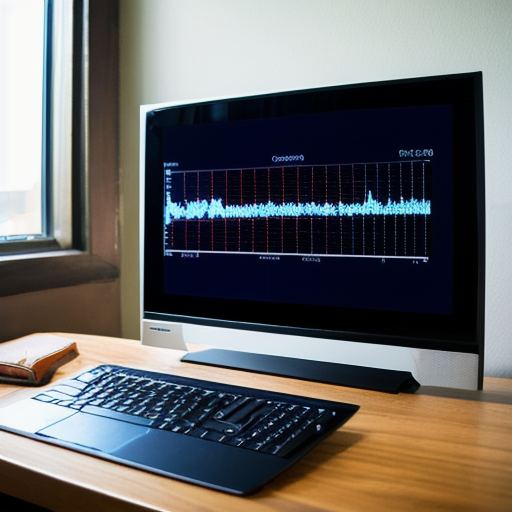PopNeuron Developing In-Vitro Slice and Recording Chamber
PopNeuron's Game-Changing Tools for In-Vitro Studies

Introduction:
PopNeuron LLC, an innovative company at the forefront of neuroscience technology, has recently been awarded a highly competitive grant from the National Institutes of Health / National Institute of Neurological Disorders and Stroke (NIH/NINDS). This significant achievement highlights their groundbreaking work in the field of neural spike sorting, a fundamental process in understanding brain activity. In this blog post, we will explore the importance of this grant and its potential impact on advancing our understanding of the brain.
Studying brain activity and decoding the neural signals that drive it are essential for understanding cognitive processes, neurological disorders, and brain functioning as a whole. Neural spike sorting plays a vital role in this pursuit by isolating and categorizing individual neurons’ electrical impulses, known as spikes, from raw neuronal recordings.
PopNeuron LLC’s success in securing an NIH grant highlights their innovative approach and promises to revolutionize this essential step, leading to more accurate and reliable interpretations of brain signals. PopNeuron’s technology will be based on their recently patented GEMsort algorithm, which is a game changer when it comes to computing power and memory required for this typically extremely computation-intensive step. GEMsort is able to reduce the computational resources required for spike sorting by several orders of magnitude when compared with other algorithms, making simultaneous live spike sorting for hundreds or even thousands of recording channels feasible for the first time. Additionally, with this algorithm, small battery powered neural prosthetics and other implants that require spike sorting are within reach for the first time.
PopNeuron LLC’s achievement in securing an NIH grant not only showcases their own expertise but also highlights the importance of collaboration and knowledge sharing in scientific research. By actively collaborating with academic institutions, researchers, and clinicians, PopNeuron aims to foster an environment of innovation and collective progress within the neuroscientific community. Through partnerships and open dialogue, PopNeuron hopes to amplify the impact of their technology, ultimately accelerating discoveries and advancements in the field of neuroscience. This grant not only provides crucial support for their research and development efforts but also solidifies PopNeuron’s position as a key player in the quest to unravel the mysteries of the brain. With their innovative approach and commitment to collaboration, PopNeuron is poised to drive breakthroughs in neuroscience, furthering our understanding of neural dynamics, brain disorders, and potential therapeutic interventions.

Details of this award:
NIH/NINDS Grant Number R41 NS132700, start date September 18, 2023. PIs: Lei, Tim & Klug, Achim (multi-PI).
Project Summary: The goal of this project is to create two prototypes of a novel live spike sorting system which can be used by investigators to spike sort streams of neural data recorded by multi-channel, high channel and ultra-high channel probes. In most in-vivo extracellular recording conditions, an electrode can pick up neural spikes from several nearby neurons resulting in so-called “multi-unit” activity in the recording trace. Spike sorting algorithms are then used to separate this multi-unit activity into several sets of “single-unit” activities, each of which represents the action potential firing pattern of a single neuron. This sorting process is typically a computationally intensive process and is growing into a critical technology gap with the advent of multi and high channel count hardware. Live spike sorting of a complete set of multichannel data has been challenging if not impossible. On the other hand, there is a demand for live spike sorting during an experiment, especially by those investigators who record from functionally heterogenous brain areas such as, for example, all cortical regions. If an investigator had the ability to review live single cell data, he/she could determine the quality of the data and adjust the electrode position or decide on next experimental steps based on the incoming results. We recently developed the GEMsort algorithm, which, compared to existing spike sorting algorithms, was designed to sort neural spikes from multichannel probes with immediate sorting outcomes. These algorithms provide powerful, accurate yet computationally inexpensive spike sorting due to a different mathematical approach. As a result, these algorithms can spike sort complete streams of complex data, including data recorded with high channel and ultra-high channel electrodes virtually in real time. In this proposal, we will develop two tabletop-sized systems based on Field-Programmable Gate Array (FPGA) technology for laboratory use. These systems will be based on the GEMsort algorithm and add live spike sorting capabilities to an investigator’s existing recording setup.
Related links:
Computationally inexpensive enhanced growing neural gas algorithm for real-time adaptive neural spike clustering Zeinab Mohammadi, John M Kincaid, Sio Hang Pun, Achim Klug, Chao Liu, Tim C Lei, Journal of Neural Engineering 16 (5), 056007
Multichannel neural spike sorting with spike reduction and positional feature Zeinab Mohammadi, Daniel Denman, Achim Klug, Tim C. Lei bioRxiv, doi: https://doi.org/10.1101/2022.09.02.506385
Process and hardware implementation of adaptive real-time neural spike sorting TC Lei, Z Mohammadi, A Klug, C Liu,US Patent 11,622,727, 2023. Awarded 04-11-2023.